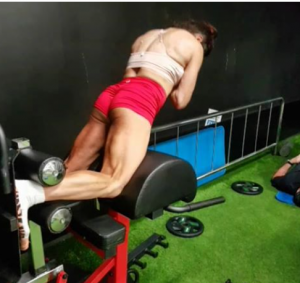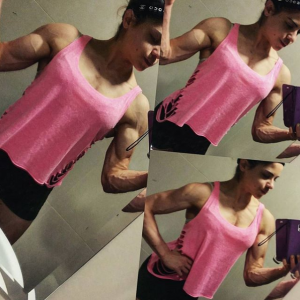Let’s Talk Calories, Body Weight, TDEE, NEAT and All Things Maintenance!
So, there is the whole cutting and building that we all know so well – but there is also this little magic land called maintenance. Sometimes the magic of the maintenance phase is so far overlooked!
What is Maintenance?
Basically, you are sitting in a ball park measure of your calories where you aren’t really losing or gaining weight.
But here is the thing. The body doesn’t do math and we don’t live in a vacuum – so our metabolism – our TDEE – even our intake (calorie counts aren’t 100% accurate on the nutritional labels) – are not to the exact dot point. Everything is dynamic. So, we adjust – play it out for about 3-4 weeks, assess our data, act on it. If our body weight is roughly the same, then we are in a maintenance.
BUT GUESS WHAT…
Maintenance doesn’t mean:
1.] You can expect your weight to remain the same daily or even weekly or monthly
2.] You cannot make progress
1.] Attempting to “shred” a fair amount & continuously for too long leads to:
Increased hunger
Increased fatigue
Satiety falls, moods worsen, sleep worsens, digestion worsens… etc., etc.…
And most of all… decreased Performance…. TDEE and NEAT drop and your metabolism adapts, and you stall… your risk of losing muscle becomes exponential.
What is TDEE? Total Daily Energy Expenditure – this gives you a great indication of what calories you need to eat each day so as to maintain your current weight.
What is NEAT? Non-Exercise Activity Thermogenesis – is the energy used in your everyday life when you’re not sleeping, playing sports or sports-like activity and eating. It could be when you go for a walk, gardening or working in the yard, just fidgeting or even typing.
2.] Attempting to “bro bulk” continuously for too long leads to:
Decreased insulin sensitivity
Increased injury risk as you keep hammering training volume and intensity
Increased fatigue same reason above
==> All leading to: exponential higher fat gain, injury & over-training risk
The human body wants to remain the same…
The longer you try to push an imbalance i.e. try & lose or gain weight, the harder it will push. Think about trying to cycle uphill, at first, you’re all OK, however as time goes on you tire and the chances of falling back get higher.
So, my thoughts on “bulking” or building?
Muscle gain is much slower than fat loss, and most should attempt to gain it around 2 to 4 times slower.
Muscle takes much more time to grow than fat can be burned off, we all know this.
Therefore, you’ll be looking to gain muscle LONG TERM! OVER MONTHS… even a year or so…
BUT it is also important to consider periodization and cyclical nutrition with slower weight gain… why?
1.] the increasing fat gain &
2.] Adaptive Resistance which lead to
3] decreasing insulin sensitivity.
– the more you do something, the less responsive you become and the greater the ratio of fat: muscle you accrue. If you keep increasing the training volume… the more you become resistant to it and you have to keep increasing it to get an effect but there comes a point where it’s ridiculous to add even more… recovery needs to be had…. And there’s only so much time and energy you can put into your training. So, you NEED to phase your training approaches to
1] allow desensitization and
2] different focus – i.e. strength vs metabolite vs just volume accumulation.
All of which are reasons I don’t believe in or like the term bulking – plus the more advanced you are in the weight room, the slower the actual muscle gain rate is…
& Obviously the slower you gain the slower fat will accumulate,
For both muscle gain and fat loss, training doesn’t look that different… and shouldn’t. We always want to train to build muscle as we aim to preserve it in fat loss phases.
As there is phasic nutrition, there is also training that you phase between strength blocks and hypertrophy blocks…
However in between the both you have to gradually build your way up as one desensitizes you from the other. I.e.; if you’re doing strength training with high intensity and low volumes… when you go into hypertrophy phases again with high volume… you need to start somewhere otherwise you will be maxing out or overreaching your maximal recoverable volume and your soreness post workout will subtract from your quality of life and other daily activity…. So, you NEED to slowly build up the volume and frequency as you go which then gives you a great stimulus for progress & consistent overload once again!
Same as going into strength phases… if you have been doing high volume high frequency the whole time and you jump into lower reps of heavier weights, you will find that the older heavy weights you did at the triples or the 5ers before are currently out of reach so you will be building up to those intensities again!
I am a great example because I remember complaining that no matter how much I did for my back, it would never fatigue or feel any post exercise soreness… I could just keep upping it without detriment but then I got to a point where if I added anymore, it would be taking away from other muscle groups.
Now… after going through a lot of desensitization of the strength phases and dropping back down A LOT – hardly anything even as the big 3, squat, bench press & deadlift, and their variations were my main bread and butter for months and months… I now feel the effects of even a third of what I used to do. Albeit now it is probably heavier, I actually even recruit my muscles more and can connect my mind to the contractions.
So, don’t just put your progress measures to the weight on the bar because we can’t keep just racking up the kgs… even some weights I do the same now as I used to, I feel much more effectively as I now recruit my muscles and perform the exercise to a higher standard.
Author,
Ruby Cherie – Ruby is an Approved Powerlifting 4 Women Strength & Conditioning Coach / Mindset Coach / Comp Prep Coach / Fat Loss Transformation Specialist / Metabolic Nutritionist / Accredited Sports Nutritionist ISSN-SNS



